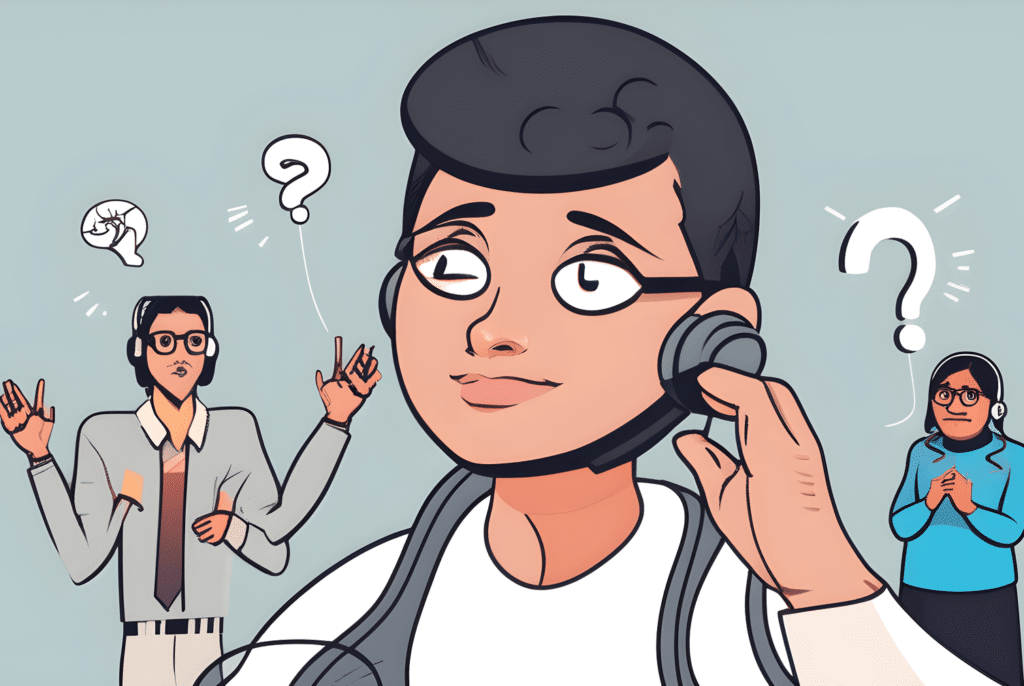
“I’m glad to hear you’re feeling better now. Take it easy and continue to rest.”
Feeling better after being unwell can be a huge relief. It’s important to continue taking care of yourself. Proper rest and a balanced diet can speed up your recovery. Staying hydrated is also crucial for regaining strength. Light exercise, like walking, can help improve your mood and physical well-being.
Social interactions, even brief ones, can lift your spirits. Remember, it’s essential to listen to your body and not rush the healing process. A gradual return to daily activities ensures lasting recovery. Celebrate small improvements and stay positive. Your health is the most important asset, so treat it with care.
Positive Responses
Everyone loves to hear that someone is feeling better. Responding with positivity can make their day even brighter. Positive responses show that you care and are happy for them. Below are some great ways to respond when someone says, “I’m feeling better now.”
Express Gratitude
Expressing gratitude is a powerful way to show that you care. It acknowledges the person’s progress and lifts their spirits. Try saying:
- “I’m so happy to hear that!”
- “That’s wonderful news!”
- “I’m glad you’re feeling better!”
These responses make the person feel appreciated and cared for. You can also ask questions to show genuine interest:
- “What helped you feel better?”
- “Is there anything you need?”
- “Do you want to talk about it?”
Showing gratitude can be a simple sentence or a thoughtful question. The key is to be sincere and supportive. A small gesture can make a big difference in someone’s day.
Share Accomplishments
Sharing accomplishments can be a great way to continue the positive energy. It can inspire and motivate the person. Here are some examples:
- “I finished that book you recommended!”
- “I started a new hobby and it’s going great!”
- “I finally cleaned out my garage!”
These responses not only share your joy but also show that you value their input. You can also use a table to highlight shared accomplishments:
| Accomplishment | Why It Matters |
|---|---|
| Completed a project | Shows dedication |
| Learned a new skill | Encourages growth |
| Helped a friend | Builds community |
Sharing your successes can uplift both you and the person you’re talking to. It creates a positive, supportive environment. Celebrating each other’s wins makes everyone feel good.
Empathetic Responses
When someone says, “I’m feeling better now,” the best responses often come from a place of empathy. Empathetic responses show you care and understand their journey. These responses make the person feel valued and heard. Let’s explore some effective ways to respond empathetically.
Acknowledge Feelings
Recognizing someone’s feelings is crucial. It shows you are listening and appreciate their experience. Here are some ways to acknowledge feelings:
- “I’m glad to hear that.” – This simple statement conveys happiness for their improvement.
- “That’s great news!” – Expresses enthusiasm and positivity.
- “I’ve been thinking about you.” – Shows they have been on your mind, reinforcing your care.
- “You’ve been so strong.” – Acknowledges their effort and resilience.
These responses not only acknowledge the person’s feelings but also validate their experience. Validation is essential because it confirms their feelings are important. Consider using a table to compare different ways to acknowledge feelings:
| Response | Emotion Conveyed |
|---|---|
| “I’m glad to hear that.” | Happiness |
| “That’s great news!” | Enthusiasm |
| “I’ve been thinking about you.” | Care |
| “You’ve been so strong.” | Validation |
By using these responses, you make the person feel understood and supported.
Offer Support
After acknowledging feelings, offering support shows your willingness to help. Here are some ways to offer support:
- “Is there anything I can do for you?” – Directly offers help and shows readiness to assist.
- “I’m here if you need anything.” – Reinforces your availability and willingness to support.
- “Do you need to talk about it?” – Provides an opportunity for them to share more.
- “Let’s catch up soon.” – Suggests a future interaction, showing ongoing support.
Offering support doesn’t always mean solving their problems. Sometimes, being there is enough. Let’s look at a table to see different support responses:
| Response | Support Type |
|---|---|
| “Is there anything I can do for you?” | Direct Assistance |
| “I’m here if you need anything.” | Availability |
| “Do you need to talk about it?” | Listening |
| “Let’s catch up soon.” | Future Interaction |
These supportive responses ensure the person knows they are not alone. They feel backed up and can rely on your help.
Encouraging Responses
When someone tells you, “I’m feeling better now,” it’s important to respond in a way that acknowledges their progress and encourages further recovery. Encouraging responses can uplift their spirits and show that you genuinely care about their well-being. Here are some of the best ways to respond to such statements.
Celebrate Progress
Celebrating progress is a great way to show that you are happy about their improvement. Acknowledging small victories can make a big difference in their journey. Here are some ways to celebrate their progress:
- “That’s wonderful to hear!” – A simple yet effective response.
- “I’m so glad you’re feeling better.” – Shows your genuine happiness.
- “You’ve come a long way.” – Reminds them of their journey.
- “Every step forward counts.” – Emphasizes the importance of progress.
Using positive language and a cheerful tone can enhance the impact of your words. Here’s a small table with some phrases to use and avoid:
| Use | Avoid |
|---|---|
| “That’s amazing!” | “It’s about time.” |
| “Keep it up!” | “Finally, you’re better.” |
| “So proud of you!” | “Took you long enough.” |
Positive reinforcement can motivate them to continue their efforts. Celebrating progress helps build their confidence and resilience.
Provide Encouragement
Encouragement plays a crucial role in maintaining their positive momentum. Here are some encouraging responses to keep their spirits high:
- “You’re doing great, keep going!” – Encourages them to continue.
- “I believe in you.” – Shows your confidence in their abilities.
- “You’re stronger than you think.” – Reinforces their inner strength.
- “It’s all about taking one step at a time.” – Focuses on steady progress.
Personalized messages can also make a big impact. For instance:
“Remember how tough it was last month? Look at you now!”
Encouragement can also come in the form of actions. Here are some ideas:
- Offer to help with tasks.
- Send a motivational quote.
- Invite them for a walk or coffee.
- Share a personal success story.
Encouraging words and actions can help them feel supported and valued. This can significantly boost their morale and assist in their recovery journey.
Curious Responses
When someone says, “I’m feeling better now,” it’s important to respond thoughtfully. The right response can show empathy and deepen your connection. Curious responses can spark meaningful conversations and show that you truly care about their well-being.
Ask About Journey
One great way to respond is to ask about their journey to feeling better. This shows genuine interest and can open up a deeper dialogue.
- How did you manage to feel better? – This question allows them to share their experience and methods.
- What changes did you make? – Understanding the steps they took can provide insights and make them feel valued.
- Did you try something new? – Encourages them to discuss any new treatments or activities that helped.
Asking about their journey not only shows that you care but also provides them with an opportunity to reflect on their progress. This can be very empowering for them.
Consider these deeper questions:
| Question | Purpose |
|---|---|
| What was the hardest part? | Shows empathy and understanding of their struggle. |
| Who supported you through this? | Highlights the importance of their support system. |
| What did you learn about yourself? | Encourages self-reflection and personal growth. |
These questions can lead to a meaningful conversation and help you understand their experience better.
Show Interest
Another effective response is to show interest in their current state and future plans. This makes them feel heard and appreciated.
- That’s great! What are you looking forward to now? – Directs the conversation towards positive future plans.
- How do you plan to maintain your health? – Shows that you care about their continued well-being.
- Do you have any new goals? – Encourages them to think about future aspirations.
Showing interest in their current state helps to keep the conversation positive and forward-thinking.
Here are some additional prompts to keep the dialogue going:
- What activities are you excited to get back to? – Encourages them to share their enthusiasm for returning to normal activities.
- How are you celebrating your progress? – Focuses on their achievements and celebrates their recovery.
- What advice would you give to someone in a similar situation? – Allows them to share their wisdom and help others.
These questions and prompts not only show your interest but also help them to feel optimistic about the future.
Frequently Asked Questions
What Should I Say When Someone Feels Better?
Express happiness for them. Say, “I’m glad to hear you’re feeling better!” It shows empathy and positivity.
How Do You Respond To Good Health News?
Congratulate them and show support. You can say, “That’s great news! I’m so happy for you!”
What’s A Polite Way To Acknowledge Someone’s Recovery?
Acknowledge their recovery by saying, “It’s wonderful to hear you’re doing better now. Take care!”
How Can I Show Empathy When Someone Feels Better?
Show empathy by saying, “I’m relieved you’re feeling better. If you need anything, let me know. “
Conclusion
Celebrating someone’s improved health strengthens relationships. Use these responses to show care and empathy. These simple words can make a big difference. Share kindness and positivity. Your thoughtful response can brighten someone’s day. Keep these tips in mind for genuine and heartfelt interactions.


